It's an exciting time to be a member of the Bethlehem Food Co-Op. Ten years after the idea for the co-op first took root, the group is celebrating two important milestones: welcoming its 1,000th member and overseeing construction of its first brick-and-mortar grocery store. “I gotta keep pinching myself,” says Kelly Allen, a member of the co-op and outgoing board chair. “It feels amazing.”
How did they get here? No recollection of the highlights of those past 10 years would be complete without the Red Pepper Story. Back in 2011, one of the group's founders was reminded of the need for more easily accessible fresh food when a trip from her Bethlehem home to the grocery store to fetch a red pepper that was needed for a recipe took 40 minutes. When she shared her gripe on social media, she found quite a few sympathetic ears. But there was more than that—there was real talk about what could be done about it. A month later, about 100 community members packed a meeting room at the Bethlehem Area Public Library to explore the idea of a food cooperative.
So, what is a co-op, anyway? It's an organization that's owned, operated, governed and financed by its members. One name that's relatively well known (even if its status as a co-op is not) is Recreational Equipment Incorporated, or REI. “It started out with a few people who wanted camping equipment and couldn't get it,” says Allen. He and his wife, Meg Mikovits, joined the food co-op in 2013, the same year the organization filed its incorporation papers. “We knew it could be a game changer for the Lehigh Valley,” Allen says. “We saw a broken food system where there were certain demographics that were being left out of the conversation.”
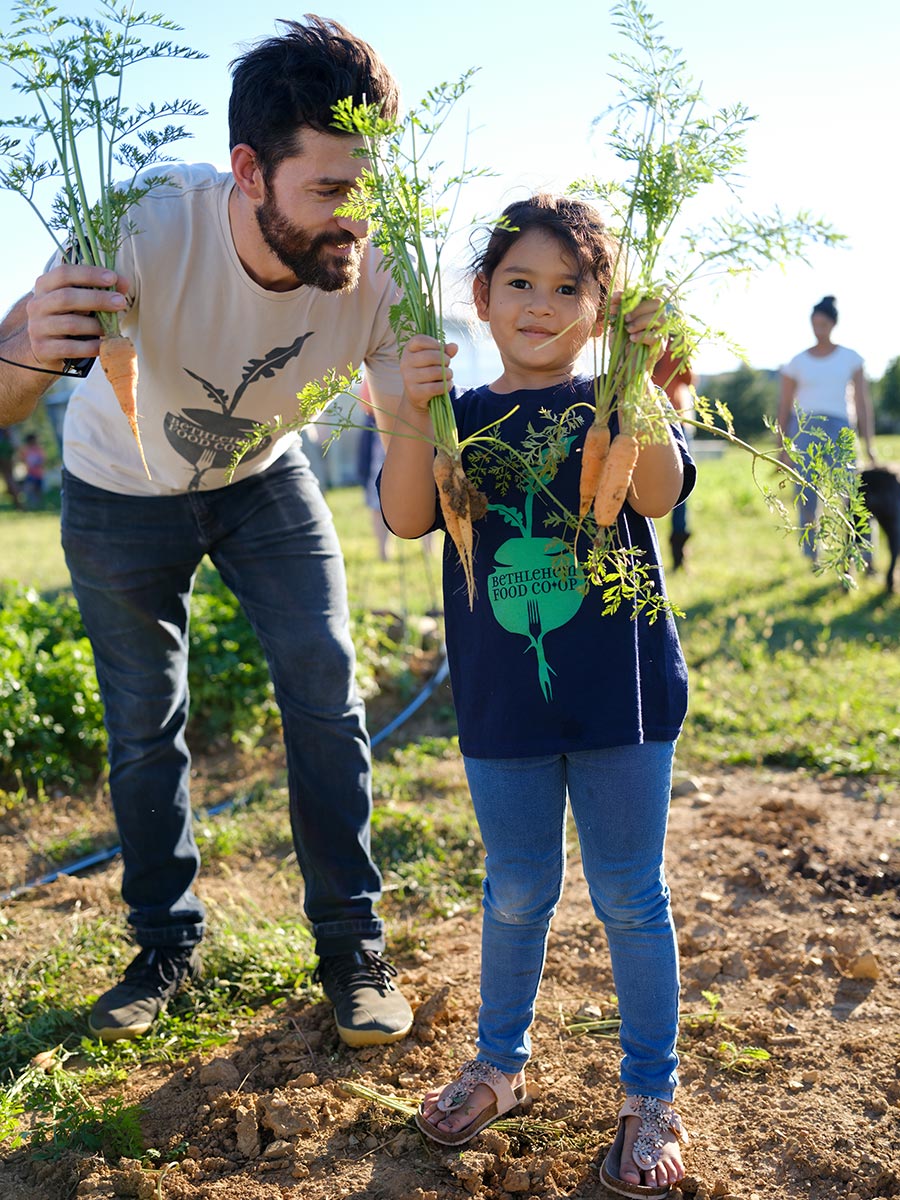
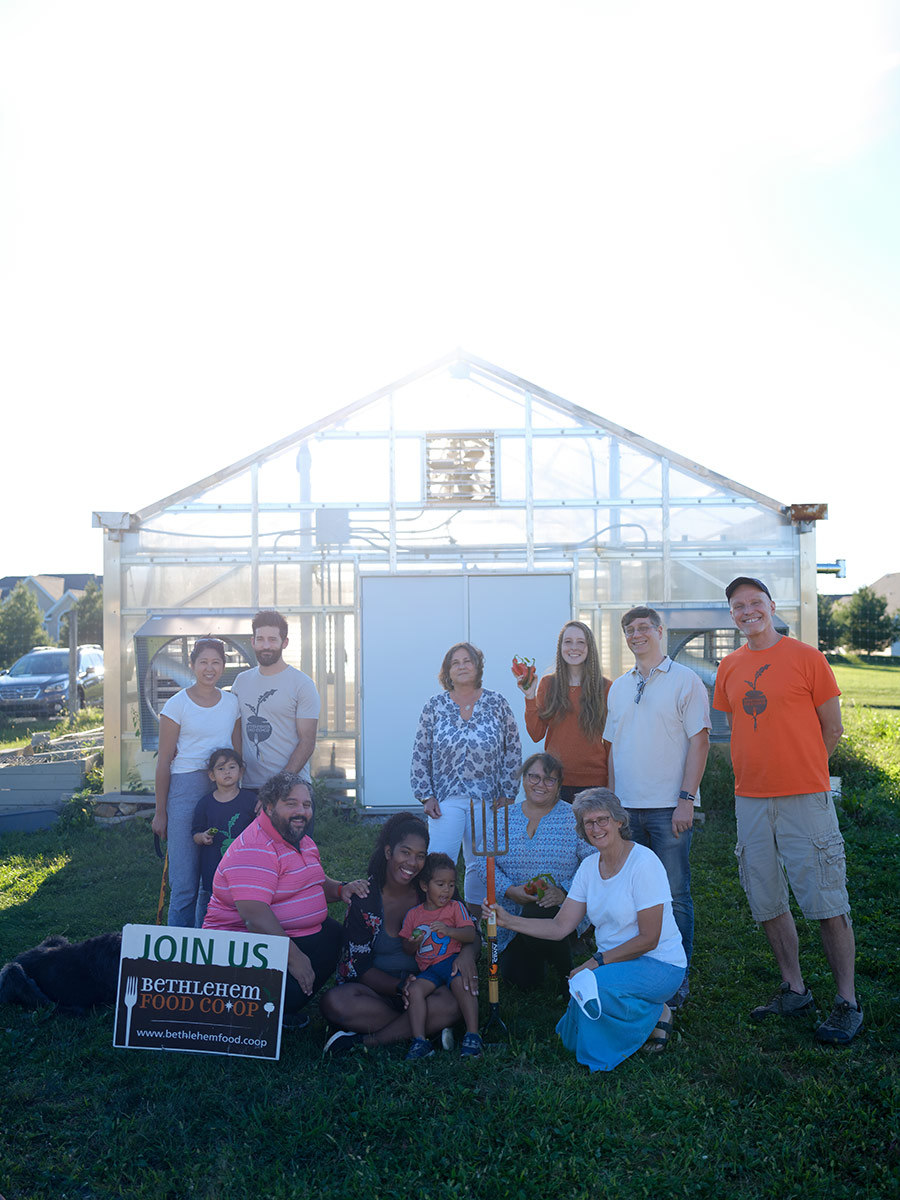
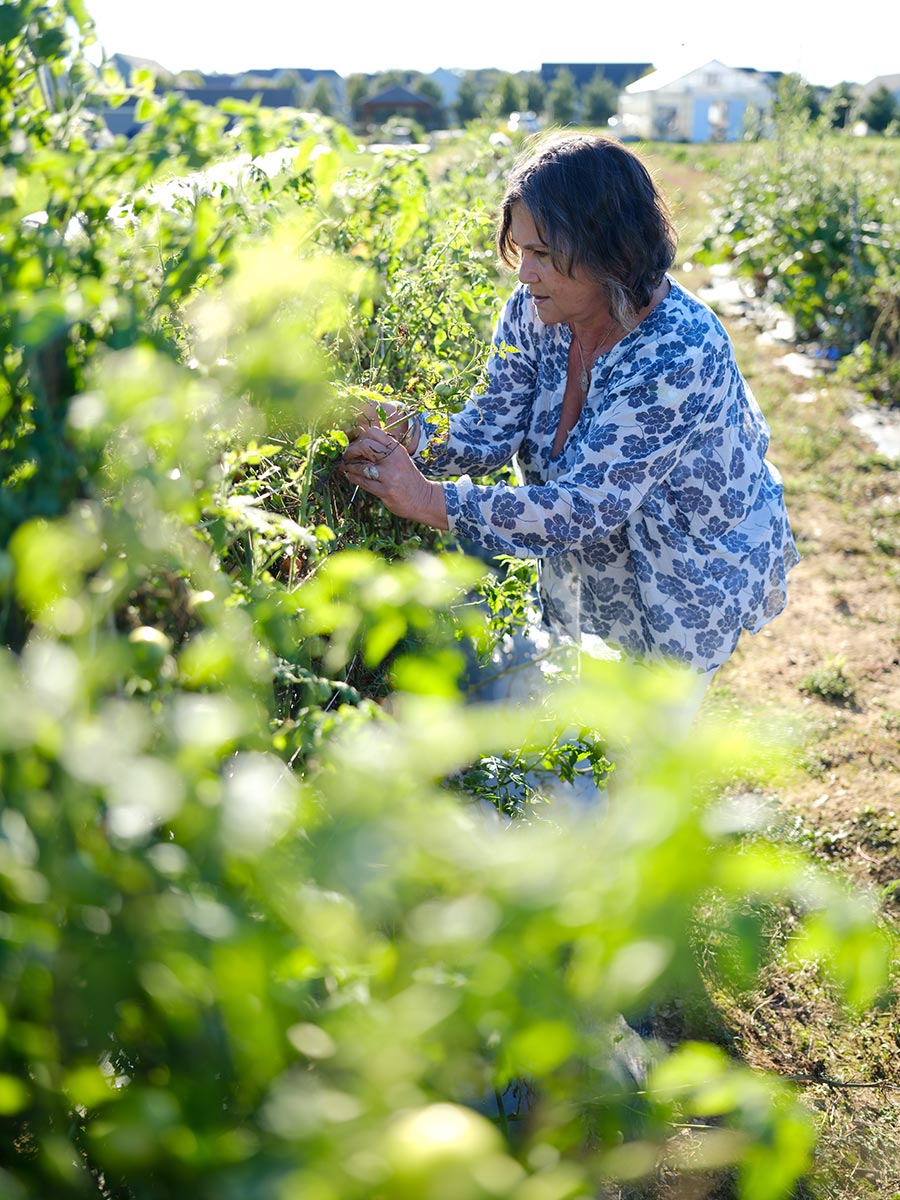
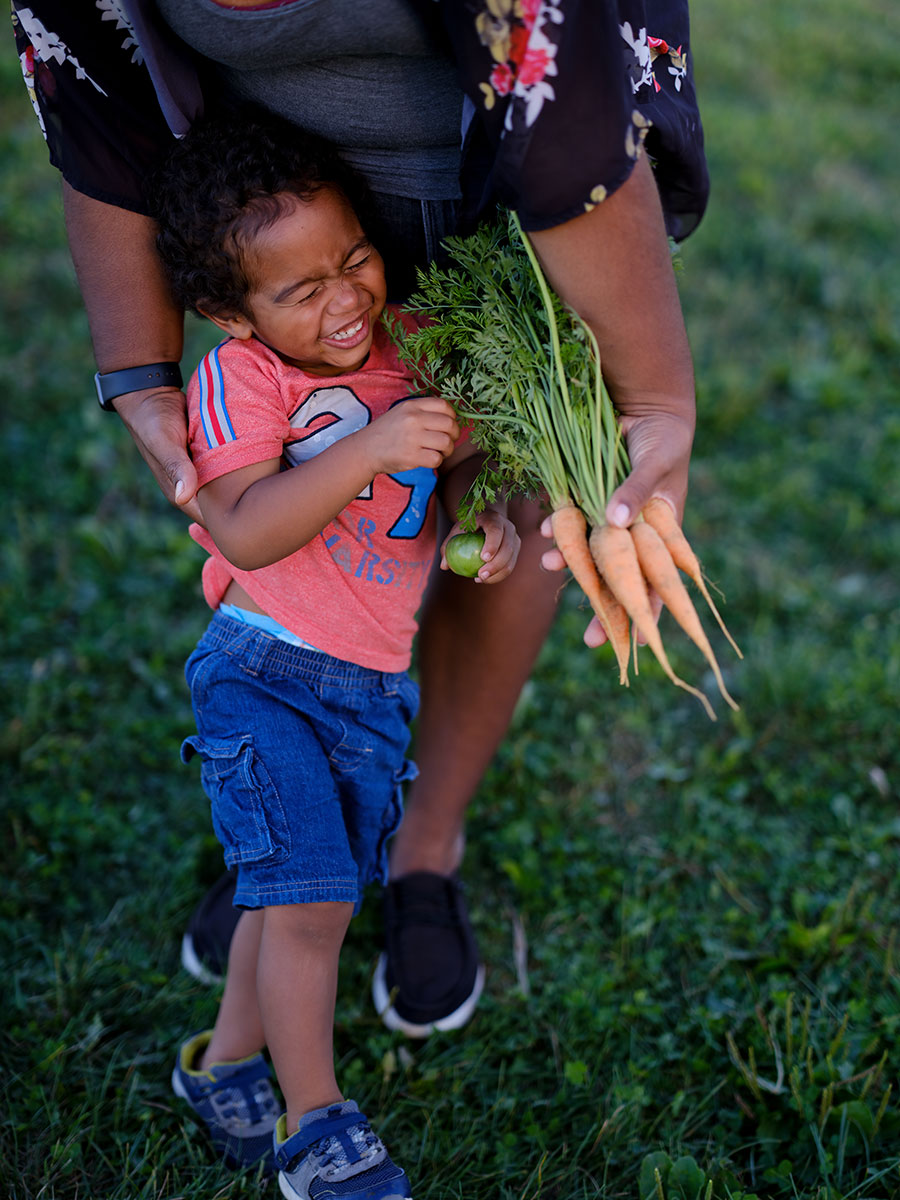
Opening a community grocery store stocked with as much locally sourced food as possible was the end goal, but getting there would take more than a little perseverance. “It's quite an involved process,” says co-op member Carol Burns. “We're volunteers starting a brand-new business.” Adds Allen: “I don't know if anyone understood how much work this would really take. We've had to learn as we go.” But a 10-year timeline for getting a food co-op up and running certainly is not unheard of; both the South Philly Food Co-Op and the Kensington Community Food Co-Op (also in Philadelphia) opened grocery stores in recent years, each one the culmination of 10 years of persistence, planning and fundraising.
The Bethlehem Food Co-Op has been in location-scouting mode for several years. Members had several criteria in mind, including accessibility: the store had to be easily reachable by foot, by car and by bicycle. Ideally, it would be positioned to serve a community that doesn't have immediate access to fresh and healthy food options, an area often dubbed a “food desert.” Finally, the big announcement was made in March of this year: the co-op's grocery store would call 250 East Broad Street home. An existing building on the site would be torn down to make way for a new, four-story building. The co-op will rent the first floor, and residential units will occupy the upper levels.
The co-op anticipates getting its first crack at the space next year, with a target opening for the grocery store sometime in the first quarter of 2023. It's progress that's being cheered on by many, and not just those within the group. “We really have enjoyed good support from the community and from the city itself,” says Burns. Bethlehem Mayor Robert Donchez was among those celebrating the announcement in July that the city had secured a $2.9 million federal grant in support of the construction of the grocery store. Donchez called the project an “important catalyst” in neighborhood revitalization plans in the area.
The grocery store will be a full-service, one-stop-shop destination. And it will be open to anyone, not just members of the co-op. “We really want the store to be a hub, a community hub,” Burns says. “Not just the place you go to buy your lettuce or your toilet paper.” They hope to include a community room and a kitchen for food preparation and educational demonstrations. In addition, the grocery store will continue the co-op's mission of supporting regional growers and producers: buy fresh, buy local. Allen says the danger of depending on the availability of food being trucked in from across the country was exemplified in the early days of the pandemic, when many store shelves were bare. “Our local food system made this massive pivot and people were able to get the food they needed,” he says.
Even though the Bethlehem Food Co-Op has made some major strides as of late, there's still plenty of work to be done. Co-ops depend on a membership base that is constantly growing, not static, so the group is always in recruitment mode. Prior to the pandemic, the co-op held house parties in which members were encouraged to bring nonmembers who might be interested in joining. “It was pretty cool, just sitting down and eating cheese and crackers and talking about the co-op,” Allen says. Those events have gone virtual for the time being. But it's still possible to connect with a co-op member, face to face. The group is a constant presence at farmers' markets in Bethlehem and Saucon Valley. Also, the co-op aims to connect with families through its Community Hubs program, a partnership with local schools. “That's the co-op meeting the community on the community's turf,” Allen says. A block party in July drew a crowd to the site of the future grocery store. And Allen says they hope to hold a similar event at Friendship Park in the future.
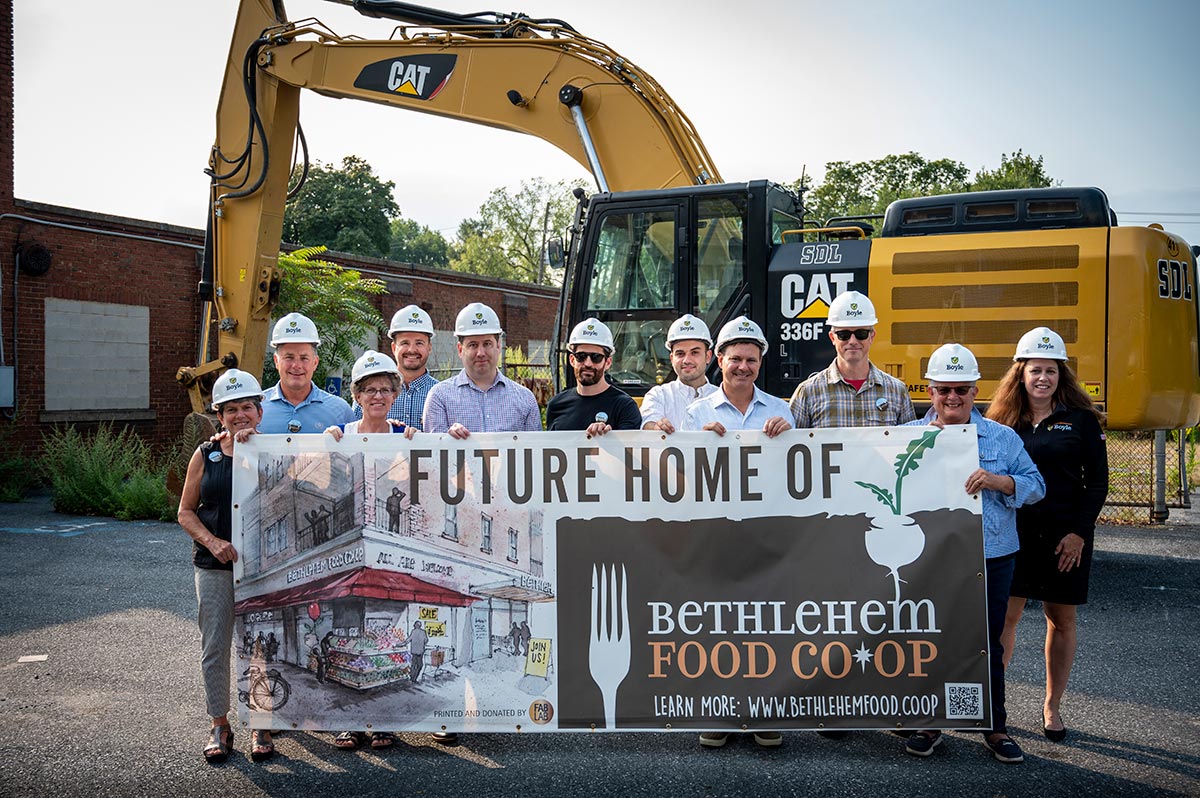
But even those who are still laying low amid the pandemic can be in the know about all happenings related to the co-op. The group's website (bethlehemfood.coop) is chock-full of information about its history, its mission and its plans. There's also a biweekly newsletter (The Sprout) anyone can subscribe to. The co-op maintains a robust social media presence as well.
The one-time cost to join the co-op is $300 per household. “We know that's a heavy lift, so we offer several options,” Burns says. The fee can be paid in monthly installments; full and partial scholarship programs are also an option. And membership does have its perks, even before the brick-and-mortar location opens—several local businesses offer discounts and freebies.
Finally, an ongoing challenge for the co-op, as it forges ahead with its grocery store and continues to add to its ranks, is constantly re-evaluating its identity. “The Lehigh Valley is a very diverse community. To really say who we are, what we're about and how we're going to serve the community is a tricky thing to do,” Allen says. The co-op is striving to add more diversity to its ranks, as most of its current members are white and middle class. Another part of the process of becoming a true representation of the community is simply listening; Allen says the co-op is interested in hearing about the “wants” of its neighbors. “We need to engage in conversations with those who will use this grocery store. We need to make sure anyone can walk in and say, ‘I belong here.'”















